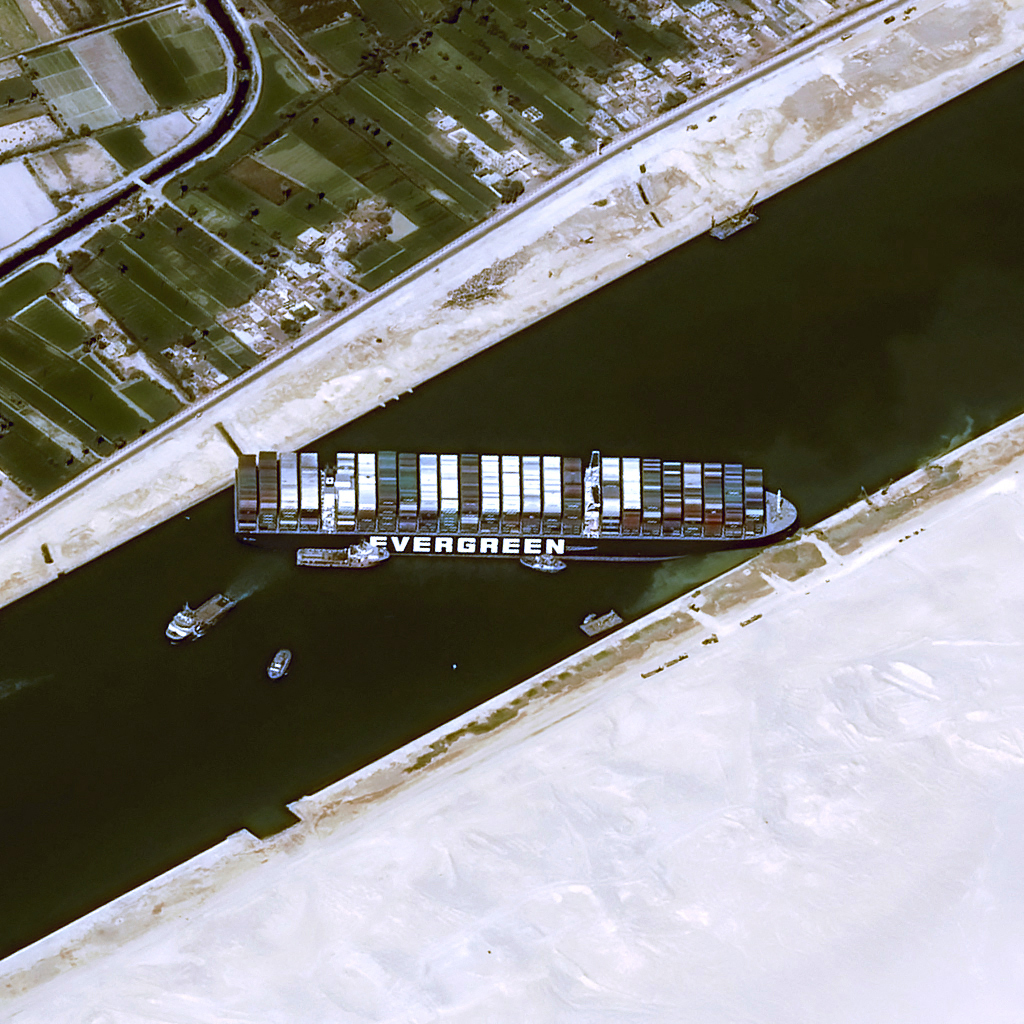S. Korean importers tense over Suez Canal blockage
By Bae HyunjungPublished : March 26, 2021 - 17:32

In the wake of the Suez Canal blockage that is paralyzing regional and global logistics, South Korean companies are starting to feel an impact.
With importers tense over possible delays in their material and product supplies, shipping companies are expected to gain from increased fees and surplus demands.
HMM, Korea’s largest and the world’s eighth-largest shipper, saw its stock price climb 15.96 percent on-day to 34,150 won ($30.20) on Friday, prolonging the uptrend for nine consecutive trading days. Earlier in the day, the figure reached 35,700 won, hitting a 52-week high.
Brokerages also raised the target stock price for the company, citing the reflex effect from the canal situation and forecasting an increase in both order volume and logistics rate.
Importers, however, are keen on securing their raw materials and products from the other side of the canal. Egypt is currently home to the manufacturing facilities of IT giants such as Samsung Electronics and LG Electronics, as well as several global medical device companies.
“As the blockage is taking more days to resolve, some (Korean) companies are starting to take the consequent impact,” said an industry official.
“Alternative routes through other ports along the Red Sea could be considered, but will likely be ineffective in terms of costs.”
According to the Institute for International Trade, a think tank affiliated with the Korea International Trade Association, increased logistics costs were fingered as the second-largest obstacle for Korean exporters this year, following increased prices of raw materials.
The semiconductors sector is to receive an immediate blow should the traffic jam prolong, as the business has already been facing a global demand shortage due to exploding demand in batteries for electric cars and other vehicles.
“The current situation will have an increasing effect on air cargo and container ship fees in the European routes,” said Um Kyung-a, a researcher at Shinyoung Securities.
“As the energy supply in the European region faces setbacks, the global oil prices will also remain on an uptrend for a while.”
In the case of lightweight or urgent cargo, operators may even turn to the skies as an expensive alternative, the expert added.
The Ever Given, a 220,000-ton Taiwan-flagged cargo ship, ran aground after being blown by sudden winds while entering the canal from the Red Sea. Wedged across the Suez Canal earlier this week, the massive vessel has been impeding the waterway traffic, blocking over 260 vessels from passing through the canal as of Thursday, according to the Suez Canal Authority.
The canal, which opened in 1869, has served as a strategic logistic hub with some 12 percent of the global trade volume and 30 percent of container transportation quantities going through it.
The canal has experienced similar blockages in the past, all of which had taken several days to recover from.
By Bae Hyun-jung (tellme@heraldcorp.com)








![[Graphic News] More Koreans say they plan long-distance trips this year](http://res.heraldm.com/phpwas/restmb_idxmake.php?idx=644&simg=/content/image/2024/04/17/20240417050828_0.gif&u=)
![[KH Explains] Hyundai's full hybrid edge to pay off amid slow transition to pure EVs](http://res.heraldm.com/phpwas/restmb_idxmake.php?idx=644&simg=/content/image/2024/04/18/20240418050645_0.jpg&u=20240419100350)





![[From the Scene] Monks, Buddhists hail return of remains of Buddhas](http://res.heraldm.com/phpwas/restmb_idxmake.php?idx=652&simg=/content/image/2024/04/19/20240419050617_0.jpg&u=20240419175937)

![[KH Explains] Hyundai's full hybrid edge to pay off amid slow transition to pure EVs](http://res.heraldm.com/phpwas/restmb_idxmake.php?idx=652&simg=/content/image/2024/04/18/20240418050645_0.jpg&u=20240419100350)

![[Today’s K-pop] Illit drops debut single remix](http://res.heraldm.com/phpwas/restmb_idxmake.php?idx=642&simg=/content/image/2024/04/19/20240419050612_0.jpg&u=)